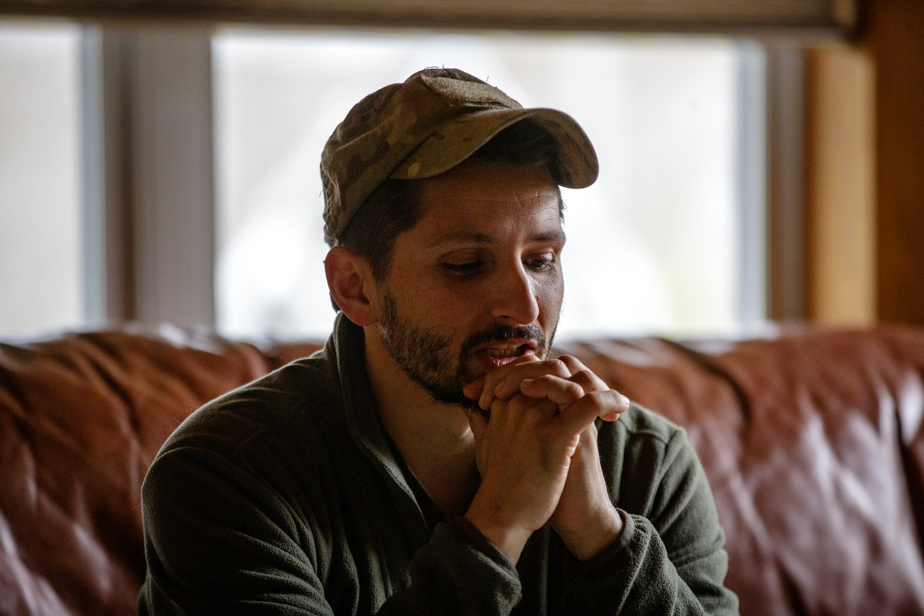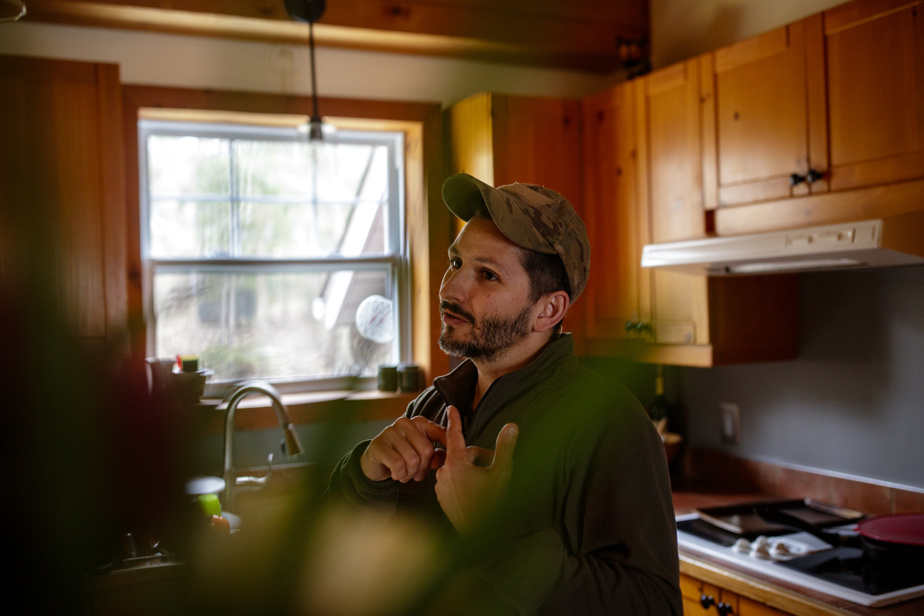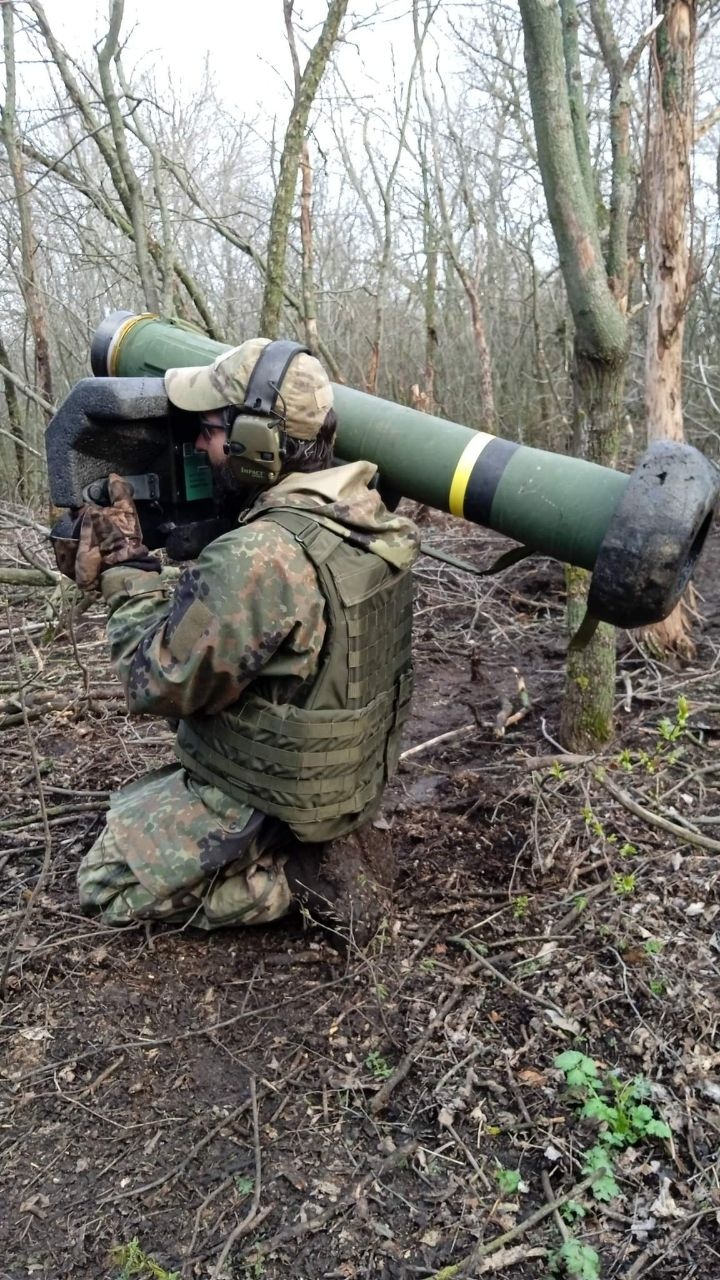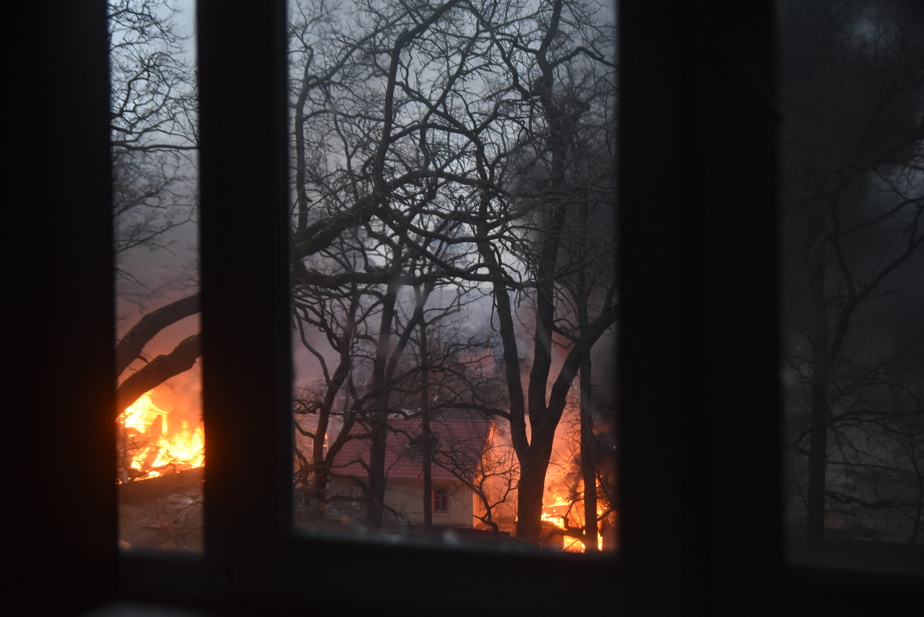“War is a terrible disappointment”

Wali, a former soldier in the Royal 22 e Régiment, is back in Quebec after spending two months in Ukraine.
PHOTO OLIVIER JEAN, THE PRESS
Two months after responding to President Volodymyr Zelensky’s call, sniper Wali is back in Quebec – unscathed, although he nearly lost his life there “several times”. But most foreign fighters like him who have gone to Ukraine have come away bitterly disappointed, mired in the fog of war without even having been to the front lines once.
“I’m lucky to still be alive, it really came close,” said the former soldier of the Royal 22 e Régiment, in an interview with La Presse in his home in the greater Montreal area.
His last mission in the Donbass region, in a Ukrainian unit that supported conscripted soldiers, somewhat precipitated his return. In the early morning, when he had just taken up position near a trench exposed to fire from Russian tanks, two of the conscripts came out of their blankets to smoke a cigarette. “I told them not to expose themselves like that, but they weren’t listening to me,” says Wali. A “highly accurate” shell fire from a Russian tank then erupted next to them. The scene described by the maverick is blood-curdling. “It exploded solid. I saw the shrapnel go by like lasers. My body tensed up. I couldn’t hear anything, I immediately had a headache. It was really violent. »
He immediately understood that there was nothing to be done for his two Ukrainian brothers in arms who had been hit hard. “It smelled of death, it’s hard to describe; it’s a macabre smell of charred flesh, sulfur and chemicals. It’s so inhuman, that smell. »

Wali visited Ukraine at the beginning of March.
PHOTO OLIVIER JEAN, THE PRESS
His partner, who wishes to remain anonymous, says he called her in the middle of the night about an hour later. “He was trying to explain to me that there had been two deaths. He was like, ‘I think I’ve done enough, huh? Have I done enough?” Looks like he wanted me to tell him to come back, she says. He was awfully calm. »

Wali on the ground in the Donbass region
PHOTO PROVIDED BY WALI
After spending two months in Ukraine, Wali draws a “rather disappointing” assessment of the deployment of Western volunteer fighters, which began in early March, following a call from President Volodymyr Zelensky. The number of volunteers who showed up – more than 20,000, according to different estimates – was so large that the Ukrainian government had to urgently establish the International Legion for the Territorial Defense of Ukraine on March 6.
But for most of the volunteers who showed up at the border, joining a military unit was a hassle.

PHOTO OLIVIER JEAN, THE PRESS
Zelensky appealed to all, but in the field the officers were completely helpless. They didn’t know what to do with us. – Wali
He and several other former Canadian soldiers initially preferred to join the Norman Brigade, a private volunteer unit based for several months in Ukraine, led by a former Quebec soldier whose nom de guerre is Hrulf .
Dissension quickly set in among the troops and a large number of fighters deserted the Norman Brigade.
Three people who requested anonymity described to La Presse promises of arms and protective equipment made by the head of the Norman Brigade which never materialized. Some of the volunteers found themselves about 40 kilometers from the Russian front without any protective equipment. “If there had been a Russian breakthrough, everyone would have been at risk. It was an irresponsible attitude on the part of the Brigade, ”says one of its former soldiers, who asked that his name be withheld for security reasons.

PHOTO PROVIDED BY WALI
Cheating and impatience
The commander of the Norman Brigade, who also asked us to withhold his real name for security reasons, confirms that he has been abandoned by around sixty combatants since the beginning of the conflict. Several of them wanted to sign a contract that would have given them status under the Geneva Conventions, as well as guarantees that they would be treated by the Ukrainian state in the event of injury. Hrulf claims that some even “schemed” to strip him of a $500,000 shipment of arms supplied by Americans, in order to create their own combat unit.
“There are guys who were in a hurry to go to the front without even having undergone the slightest security check. The Ukrainians tested us, and only now are we starting to get more missions. There’s an element of trust that needs to be built, and that’s completely normal,” says Hrulf.
A “terrible disappointment”
“Many volunteer fighters expect it to be turnkey, but war is the opposite, it’s a terrible disappointment,” summarizes Wali for his part.
With another Quebec infantryman nicknamed Shadow, the Quebec sniper finally joined a Ukrainian unit that was fighting in the Kyiv region.

PHOTO OLIVIER JEAN, THE PRESS
According to Wali, joining a Ukrainian military unit has been a hassle for the majority of Western volunteers.
But then again, finding a gun to fight with was a Kafkaesque exercise. “You had to know someone who knew someone who told you that in some old barbershop they would give you an AK-47. You had to tinker with a soldier’s kit like that by picking up pieces and ammunition left and right, in many cases with weapons in more or less good condition, ”he says.
Even for the meals, it is often the civilians who provide them. It is the same for gasoline to move in a vehicle. You constantly have to organize yourself, to know someone who knows someone. –Wali
-

PHOTO OLIVIER JEAN, THE PRESS
Wali brought back a box of Russian rations, recovered from the rubble of a destroyed vehicle.
-

PHOTO OLIVIER JEAN, THE PRESS
The ex-sniper also reported this 30mm shell fired by a Russian tank.
-

PHOTO OLIVIER JEAN, THE PRESS
Wali brought back a box of Russian rations, recovered from the rubble of a destroyed vehicle.
After a few weeks in Ukrainian territory, some of the most experienced Western soldiers ended up being recruited by the Ukrainian Military Intelligence Directorate, and would now participate in special operations behind enemy lines, according to one of them. .
Others, less experienced, “jump from one Airbnb to another” while waiting to be recruited by a unit that will take them to the front, says Wali.
The majority, however, have decided to go home, say several people interviewed for this article. “Many arrive in Ukraine with their chests bulging, but they leave with their tails between their legs,” says Wali.

PHOTO PROVIDED BY WALI
Fire caused by the bombardment of Ukrainian positions, near Irpin, in the suburbs of Kyiv
In the end, he himself said he only fired two bullets into windows “to scare people” and never really came within enemy firing range. “It’s a war of machines”, where the “extremely brave” Ukrainian soldiers suffer very heavy losses from shelling, but “miss many opportunities” to weaken the enemy because they lack knowledge technical military, he summarizes. “If the Ukrainians had the procedures we had in Afghanistan to communicate with the artillery, we could have caused carnage,” he believes.
But Wali does not hide his desire to return there despite everything. “You never know when foreign fighters will make a difference on the ground. It’s like a fire extinguisher: it’s useless until the fire catches. »

PHOTO OLIVIER JEAN, THE PRESS
The former sniper does not rule out the idea of returning to Ukraine despite everything.
La Presse via Google Translate
He is disappointed about the reality of what is going on there. Things appear to be quite different than what we are being told. That is the trouble with propaganda during wartime. It rarely if ever tells you the truth no matter which side is spreading it.